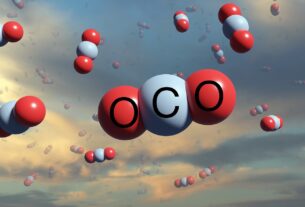United Kingdom – Veolia has embarked on a site feasibility study preceding a pilot project aimed at revolutionizing energy recovery facilities (ERF) in the UK through innovative carbon capture processes.
At the core of this endeavor lies the goal of producing green fuels by capturing, extracting, and purifying CO2 emissions, thus paving the way for the creation of synthetic green end products such as eKerosene, eMethanol, and specialty chemicals. Engineered by Veolia’s in-house design teams, the system employs Advanced Amine technologies to capture carbon emissions from the combustion of non-recyclable biogenic waste, which accounts for approximately 60% of CO2 emissions generated during the incineration process. By combining biogenic CO2 with green hydrogen, fuels like eMethanol and Sustainable Aviation Fuel can be produced, effectively reducing the carbon intensity of shipping and air travel.
Implementing CCUS technology
Veolia estimates that the implementation of carbon capture, utilization, and storage (CCUS) technology could enable its Energy Recovery Facilities in the UK to achieve carbon savings of over 100,000 tonnes per year. By seamlessly integrating CCUS technology into existing energy recovery sites, Veolia aims to achieve near-zero, or even negative, CO2 emission power generation, thereby significantly enhancing the environmental and energy balances of municipal waste incineration.
Veolia currently operates 10 Energy Recovery Facilities in the UK, processing approximately 2.3 million tonnes of non-recyclable waste annually and generating electricity for over 400,000 homes. With a combined generating capacity of 180MWe, these facilities alleviate pressure on the UK electrical grid and minimize reliance on fossil fuels for energy generation. Additionally, some ERFs produce heating for communities through district heating networks, further enhancing their sustainability impact.




